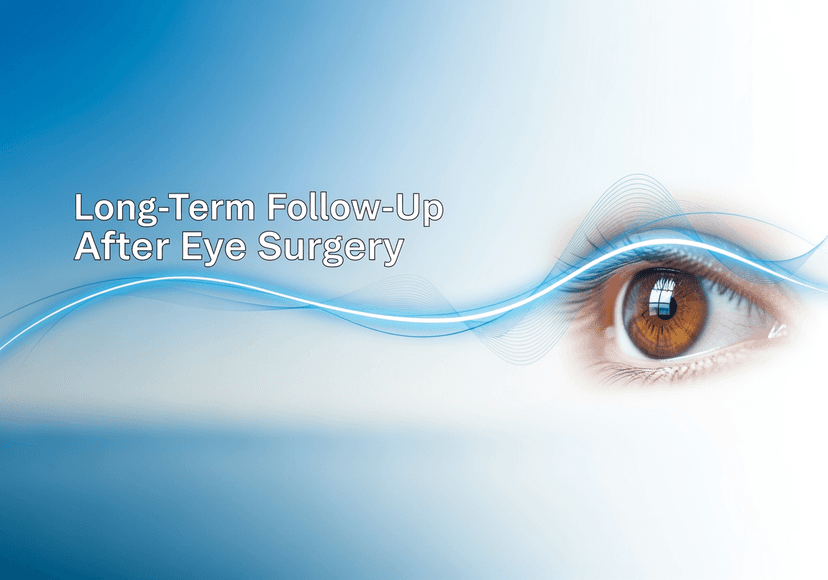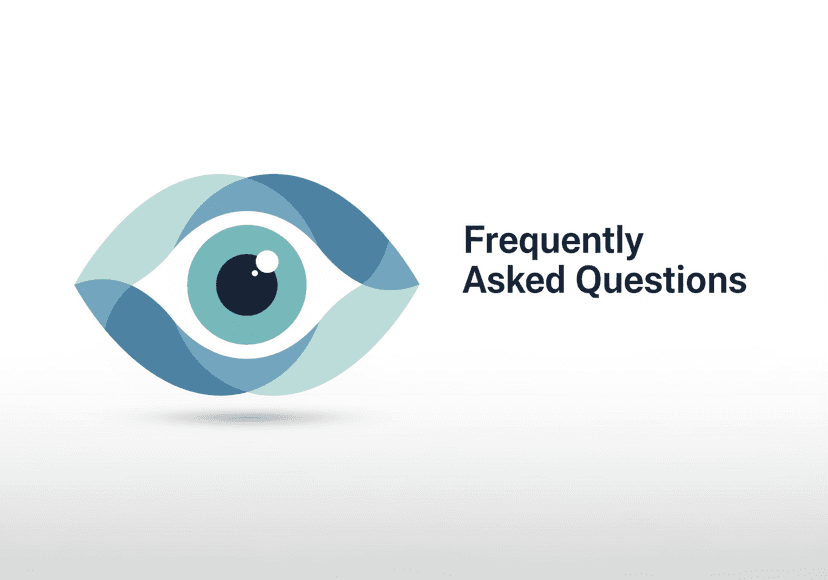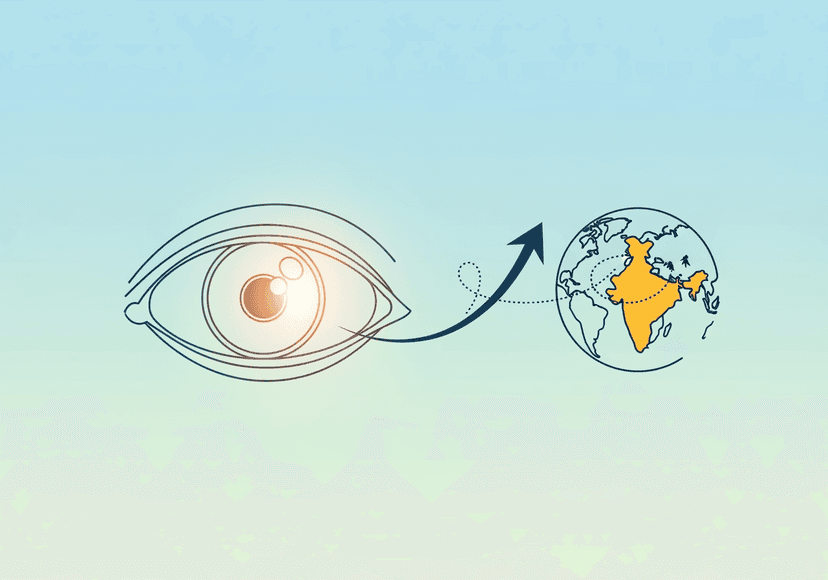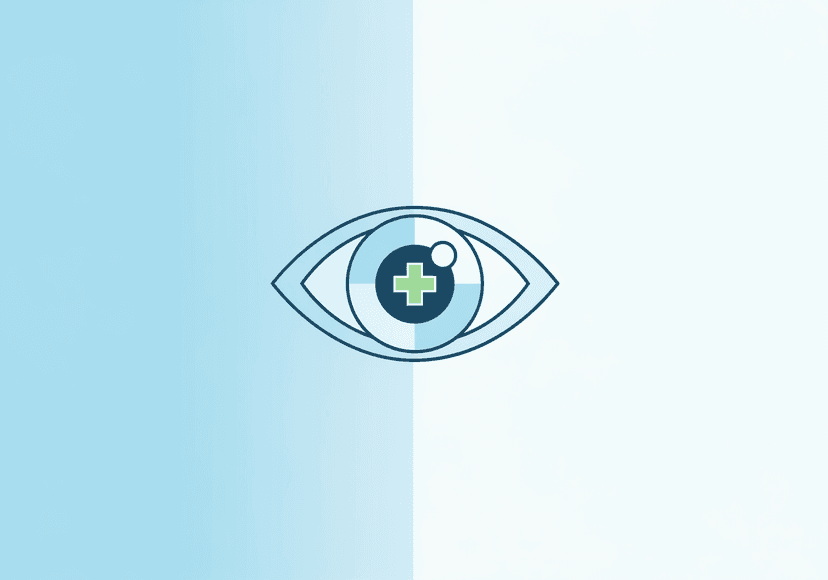
Do's and Don'ts During Recovery After Eye Surgery's Healthtrip Tips
18 Sep, 2025
 Healthtrip
Healthtrip- Creating the Ideal Post-Operative Environment: Where to Recover
- Essential Do's for Eye Surgery Recovery: A Step-by-Step Guide
- Crucial Don'ts During Eye Surgery Recovery: Avoiding Complications
- Diet and Nutrition: Powering Your Eye Recovery Journey
- Managing Discomfort and Pain After Eye Surgery: What to Expect and How to Cope
- Recognizing and Addressing Potential Post-Operative Complications
- Healthtrip Partner Hospitals for Eye Surgery: Locations and Expertise
- Conclusion: Ensuring a Smooth Recovery
Creating the Ideal Post-Operative Environment: Where to Recover
``````htmlEssential Do's for Eye Surgery Recovery: A Step-by-Step Guide
``````htmlCrucial Don'ts During Eye Surgery Recovery: Avoiding Complications
``````htmlDiet and Nutrition: Powering Your Eye Recovery Journey
``````htmlManaging Discomfort and Pain After Eye Surgery: What to Expect and How to Cope
``````htmlRecognizing and Addressing Potential Post-Operative Complications
``````htmlHealthtrip Partner Hospitals for Eye Surgery: Locations and Expertise
``````htmlConclusion: Ensuring a Smooth Recovery
```Do's After Eye Surgery
First and foremost, listen to your doctor, whether you had your procedure at Singapore General Hospital or perhaps nearer home at Fortis Hospital, Noida. They know best! Adhere strictly to the prescribed medication schedule, including eye drops, and never skip a dose, even if you feel fantastic. These medications are designed to prevent infection, reduce inflammation, and promote healing. Attending all your follow-up appointments is crucial; these check-ups allow your surgeon to monitor your progress and address any potential complications early on. Protect your eyes from bright sunlight and harsh winds by wearing sunglasses as recommended by your doctor; think of them as your personal force field. Get plenty of rest! Your body needs time to heal, and sleep is when the magic happens. Gentle activities like light walking are generally fine, but avoid strenuous exercise or heavy lifting that could strain your eyes. Consider using lubricating eye drops frequently to combat dryness, a common side effect after eye surgery, and stay hydrated by drinking plenty of water, which helps keep your eyes moisturized from the inside out. Ensure you maintain a healthy diet rich in vitamins and minerals to support your body's natural healing processes. Remember, Healthtrip can assist you in coordinating post-operative care and finding accommodation near your chosen medical facility to make your recovery seamless.
Most popular procedures in India
Don'ts After Eye Surgery
Now, let's talk about the things you should avoid like the plague. Firstly, don't rub your eyes, no matter how itchy or irritated they feel. Rubbing can disrupt the healing process and even damage your delicate tissues. Avoid wearing eye makeup for at least a week or as instructed by your doctor; those sparkly shadows can introduce bacteria and irritate your recovering eyes. Swimming is a definite no-no for a few weeks, as the water can harbor bacteria and increase your risk of infection. Similarly, avoid hot tubs, saunas, and steam rooms, as the heat can promote inflammation. Don't drive until your vision has stabilized and your doctor gives you the green light, particularly important if you've traveled to a place like Bangkok Hospital for specialized care. Avoid reading or watching TV for extended periods, as this can strain your eyes. Limit screen time and take frequent breaks to rest your eyes. Don't expose your eyes to dust, smoke, or other irritants. Stay indoors when the air quality is poor, and consider using an air purifier to create a clean environment. And crucially, don’t self-medicate or use any eye drops other than those prescribed by your doctor; stick to the script! Healthtrip can help you find vetted transportation services to doctor's appointments, so you don't have to worry about driving or exposing yourself to harmful weather elements.
Healthtrip Tips for a Smooth Recovery
To make your recovery even smoother, Healthtrip recommends creating a comfortable and relaxing environment at home. Dim the lights, stock up on audiobooks or calming music, and surround yourself with things that make you feel good. Prepare meals in advance or ask for help with cooking so you can focus on resting. Consider using a humidifier to keep the air moist, especially during dry weather. If you've traveled for surgery, let's say to Breyer, Kaymak & Klabe Augenchirurgie, take advantage of Healthtrip's concierge services to arrange transportation, accommodation, and translation assistance. Enlist the help of family or friends to run errands, drive you to appointments, and provide emotional support. Don't hesitate to reach out to your doctor or the Healthtrip team if you have any concerns or questions; we're here to help you every step of the way. Remember, recovery is a process, and it's okay to have good days and bad days. Be patient with yourself, celebrate small victories, and focus on the long-term goal of clear and healthy vision. Think of this recovery period as an opportunity to slow down, recharge, and appreciate the simple things in life, knowing that Healthtrip is your partner in ensuring a successful and stress-free journey back to optimal eye health whether it’s after a procedure at Quirónsalud Proton Therapy Centre or NMC Specialty Hospital, Al Nahda, Dubai.
Wellness Treatments
Give yourself the time to relax
Lowest Prices Guaranteed!

Lowest Prices Guaranteed!
Creating the Ideal Post-Operative Environment: Where to Recover
After undergoing eye surgery, the environment where you recover plays a significant role in your healing process. Imagine coming home to a space that feels like a sanctuary, specifically designed to promote rest and minimize strain on your eyes. This isn't just about physical comfort; it's about creating a holistic environment that nurtures your well-being and accelerates your recovery. Start by decluttering the areas where you'll spend most of your time. A tidy space reduces stress and the risk of accidental bumps or trips, which are definitely things to avoid after eye surgery! Think about it – fewer obstacles mean less chance of a mishap. Next, consider the lighting. Harsh, bright lights can be incredibly uncomfortable for sensitive eyes, especially in the initial days post-surgery. Soft, diffused lighting is your best friend. Invest in lamps with adjustable settings or use blackout curtains to control the amount of natural light entering the room. Think gentle, warm hues, like the soft glow of a sunset. Maintaining optimal humidity is another key factor. Dry air can irritate your eyes, leading to discomfort and potentially slowing down the healing process. A humidifier can work wonders, keeping the air moist and soothing your eyes. Aim for a humidity level between 30% and 50%. It's like giving your eyes a gentle, hydrating hug. Finally, ensure you have easy access to all the essentials – eye drops, medications, reading materials, and entertainment. Keeping everything within arm's reach minimizes the need to get up and search, reducing strain on your eyes and body. Consider setting up a cozy recovery station, complete with comfortable seating, pillows, and blankets. This will be your haven, a place where you can relax, unwind, and focus on healing. At Healthtrip, we understand the importance of a comfortable and supportive recovery environment. Many of our partner hospitals, such as Vejthani Hospital and Bangkok Hospital, offer post-operative care packages designed to cater to your specific needs, ensuring a smooth and stress-free transition from the hospital to your home.
Essential Do's for Eye Surgery Recovery: A Step-by-Step Guide
Navigating the post-operative period after eye surgery can feel a bit like walking through a maze, but with the right guidance, you can confidently make your way to a successful recovery. Think of this as your personalized roadmap, outlining the essential "do's" that will support your healing and minimize the risk of complications. First and foremost, adhere strictly to your doctor’s instructions. This might seem obvious, but it's crucial. Your surgeon at facilities like Fortis Memorial Research Institute or Max Healthcare Saket, provides specific guidelines tailored to your individual needs and the type of surgery you underwent. This includes instructions on medication, eye drops, and follow-up appointments. Set reminders on your phone or create a visual schedule to stay on track. Next, focus on protecting your eyes. This means wearing the protective shield or glasses provided by your doctor, especially during sleep and while outdoors. These shields act as a barrier against accidental bumps, scratches, and exposure to harmful elements like dust and sunlight. Think of them as your eye's personal bodyguards! Regular use of prescribed eye drops is also essential. These drops help to prevent infection, reduce inflammation, and keep your eyes lubricated, which is particularly important in the initial days after surgery. Follow the prescribed dosage and timing meticulously. It's like giving your eyes a refreshing spa treatment. Adequate rest is paramount. Your body needs time to heal, and sleep is when the magic happens. Aim for at least 7-8 hours of quality sleep each night. Create a relaxing bedtime routine and avoid screen time before bed to promote restful sleep. Think of it as hitting the reset button for your eyes. Finally, maintain good hygiene. Wash your hands thoroughly before touching your eyes or applying eye drops. Use clean towels and avoid sharing personal items like washcloths or pillowcases. This minimizes the risk of infection and promotes a clean, healthy healing environment. At Healthtrip, we're committed to providing you with the resources and support you need for a seamless recovery. Our partner hospitals, including Memorial Bahçelievler Hospital and LIV Hospital, Istanbul offer comprehensive post-operative care and guidance to ensure you're well-equipped to navigate your recovery journey.
Crucial Don'ts During Eye Surgery Recovery: Avoiding Complications
Just as important as knowing what to do after eye surgery is understanding what to avoid. These "don'ts" are crucial for preventing complications and ensuring a smooth, successful recovery. Think of them as guardrails, keeping you safely on the path to healing. First and foremost, don’t rub your eyes! This is perhaps the most important rule of all. Rubbing your eyes, especially in the initial days after surgery, can disrupt the healing process, dislodge sutures, and even cause serious damage. It's like poking a fragile wound – definitely something to avoid! If your eyes feel itchy or irritated, use artificial tears prescribed by your doctor instead. Avoid strenuous activities and heavy lifting. Activities that increase blood pressure can put undue strain on your eyes and potentially lead to complications. This includes activities like weightlifting, intense exercise, and even bending over for extended periods. Think of it as giving your eyes a break from exertion. Light activities like gentle walking are generally fine, but always consult with your doctor before resuming any physical activity. Don’t expose your eyes to irritants. This includes smoke, dust, pollen, and other environmental pollutants. These irritants can cause inflammation and increase the risk of infection. Avoid smoky environments, wear protective eyewear when outdoors, and consider using an air purifier to keep your home environment clean. Think of it as creating a protective shield around your eyes. Avoid wearing eye makeup. Makeup can introduce bacteria into the eye and increase the risk of infection. It's best to avoid wearing any eye makeup until your doctor gives you the green light. This includes mascara, eyeliner, eyeshadow, and even concealer around the eyes. Think of it as giving your eyes a makeup-free vacation. Finally, don’t skip your follow-up appointments. These appointments are crucial for monitoring your progress, detecting any potential complications early, and adjusting your treatment plan as needed. Think of them as pit stops on your recovery journey. At Healthtrip, we want to ensure you have the best possible experience. Our partner hospitals, such as Singapore General Hospital and Mount Elizabeth Hospital, emphasize comprehensive post-operative care to minimize risks and optimize healing. They provide detailed instructions and are readily available to address any concerns, making it easier to adhere to these crucial "don'ts. "
Also Read:
Diet and Nutrition: Powering Your Eye Recovery Journey
After undergoing eye surgery, your body needs the right fuel to heal effectively and efficiently. Think of it like this: your eyes have just completed a marathon, and now they need a recovery plan just as any athlete would. What you eat plays a critical role in this recovery process. Focus on incorporating foods rich in vitamins, minerals, and antioxidants into your diet. These nutrients support tissue repair, reduce inflammation, and boost your immune system, all crucial for a speedy recovery. Imagine your plate filled with vibrant colors – leafy greens like spinach and kale, bright orange carrots, and juicy, red berries. These are not just visually appealing; they are powerhouse foods packed with essential nutrients that can significantly aid your healing process. Remember, proper nutrition is not just about eating; it's about nourishing your body to help it rebuild and recover—a key step on your road to recovery with Healthtrip.
Essential Nutrients for Eye Recovery
Specific nutrients are particularly beneficial for eye health and recovery post-surgery. Vitamin A, found abundantly in sweet potatoes and liver, supports the health of the cornea. Vitamin C, present in citrus fruits and bell peppers, is a potent antioxidant that protects against damage from free radicals. Vitamin E, found in almonds and sunflower seeds, also acts as an antioxidant and supports overall tissue health. Zinc, abundant in pumpkin seeds and oysters, plays a vital role in transporting vitamin A from the liver to the retina to produce melanin, a protective pigment in the eyes. Lutein and zeaxanthin, antioxidants found in leafy greens and eggs, help protect the retina from light-induced damage. Omega-3 fatty acids, present in fish like salmon and flaxseeds, reduce inflammation and support the health of the retina. By incorporating these nutrients into your diet, you are essentially providing your eyes with the building blocks they need to repair and thrive. It’s like giving your eyes a customized toolkit for healing, making your recovery journey smoother with Healthtrip's expert guidance.
Foods to Embrace and Foods to Avoid
While focusing on beneficial nutrients, it’s equally important to be mindful of foods that could hinder your recovery. Embrace a diet rich in whole, unprocessed foods. Load up on fruits, vegetables, lean proteins, and whole grains. Hydration is also key; drink plenty of water to keep your body functioning optimally and to help prevent dry eyes, a common post-operative issue. On the flip side, limit your intake of processed foods, sugary drinks, and excessive caffeine. These can contribute to inflammation and dehydration, potentially slowing down your healing process. Avoid excessive salt, which can cause fluid retention and swelling. Alcohol should also be avoided, as it can interfere with medications and impair your body's ability to heal. Consider it a temporary sacrifice for long-term gain. By making these conscious dietary choices, you’re setting the stage for a more comfortable and efficient recovery process, ensuring you get the most out of your Healthtrip experience.
Also Read:
Managing Discomfort and Pain After Eye Surgery: What to Expect and How to Cope
Let's be honest, post-operative discomfort after eye surgery is normal. It's your body's way of saying, "Hey, I'm healing here!" But understanding what to expect and how to manage it can make a significant difference in your recovery experience. Most patients experience some degree of pain, often described as a gritty or scratchy sensation. You might also notice increased sensitivity to light, blurry vision, or mild swelling around the eye. These symptoms are usually temporary and should gradually improve over time. However, everyone's pain threshold is unique, so it's essential to have a plan in place to address any discomfort. Think of it like navigating a road trip; you know there might be bumps along the way, but you can prepare for them and make the journey as smooth as possible with Healthtrip.
Pain Relief Strategies and Medications
Your surgeon will likely prescribe pain medication or recommend over-the-counter options like acetaminophen or ibuprofen. Use these as directed, and don't hesitate to reach out to your doctor if you feel the pain is not adequately controlled. In addition to medication, there are several non-pharmacological strategies you can employ. Applying a cold compress to your eye for 10-15 minutes at a time can help reduce swelling and numb the area. Artificial tears can provide relief from dryness and irritation. Creating a calm, dark environment can minimize light sensitivity. Relaxation techniques like deep breathing or meditation can also help you manage pain and anxiety. It's about creating a multi-faceted approach to pain management, combining medication with self-care practices to optimize your comfort. Healthtrip's network of healthcare professionals can provide tailored advice and support to help you find the most effective pain relief strategies for your specific needs.
When to Seek Medical Attention
While some discomfort is normal, certain symptoms warrant immediate medical attention. If you experience a sudden increase in pain, a significant decrease in vision, or any signs of infection, such as redness, pus, or fever, contact your doctor right away. These could be indicators of a complication that needs prompt treatment. It's always better to err on the side of caution. Don't hesitate to reach out to your healthcare team with any concerns you may have. Remember, you're not alone in this process. Healthtrip is committed to providing you with the resources and support you need to navigate your recovery journey with confidence. Keep an open line of communication with your medical team and trust your instincts. If something doesn't feel right, seek professional advice.
Also Read:
Recognizing and Addressing Potential Post-Operative Complications
While most eye surgeries are successful, being aware of potential post-operative complications is crucial for a smooth recovery. Knowledge is power, and understanding what to look for empowers you to take prompt action if needed. Common complications can include infection, increased eye pressure (glaucoma), retinal detachment, corneal swelling, and inflammation. While these sound scary, most are treatable, especially when caught early. Think of it as being prepared for any unexpected detour on your road to recovery. By knowing the signs and symptoms, you can quickly alert your medical team and get back on track with Healthtrip's expert support.
Common Complications and Their Symptoms
Infection symptoms can include increased pain, redness, swelling, and discharge from the eye. A sudden decrease in vision, seeing floaters or flashes of light, or a curtain-like shadow over your vision could indicate a retinal detachment. Severe eye pain, headache, blurred vision, and nausea might signal increased eye pressure. Persistent blurry vision or glare could be due to corneal swelling. These are just a few examples, and the specific symptoms can vary depending on the type of surgery you had. The key is to pay close attention to any changes in your vision or eye comfort and report them to your doctor promptly. Consider it like monitoring the gauges on your car's dashboard; if something seems off, it's time to pull over and check it out.
When to Seek Immediate Medical Attention
If you experience any of the symptoms mentioned above, or any other concerning changes in your eye health, it's essential to seek immediate medical attention. Don't wait and see if it gets better on its own. Prompt diagnosis and treatment can significantly improve the outcome and prevent long-term damage. Contact your surgeon or go to the nearest emergency room. Explain your symptoms clearly and provide a detailed medical history. Remember, your health and well-being are the top priority. Don't hesitate to advocate for yourself and seek the care you need. Healthtrip is committed to ensuring you have access to the best possible medical care, and our team is available to assist you with any concerns you may have.
Also Read:
Healthtrip Partner Hospitals for Eye Surgery: Locations and Expertise
Choosing the right hospital and medical team is a crucial step in ensuring a successful eye surgery and recovery. Healthtrip partners with leading hospitals around the world that boast state-of-the-art facilities, experienced surgeons, and a commitment to patient care. These hospitals offer a wide range of eye surgery procedures, from LASIK and cataract surgery to more complex procedures like glaucoma surgery and retinal detachment repair. When you choose a Healthtrip partner hospital, you can rest assured that you are in good hands. We meticulously vet our partner hospitals to ensure they meet the highest standards of quality and safety. It's like having a trusted friend recommend the best mechanic for your car; you know you're getting reliable service and expertise with Healthtrip.
Featured Hospitals and Their Specialties
Here are a few examples of Healthtrip partner hospitals renowned for their excellence in eye surgery: In Germany, Breyer, Kaymak & Klabe Augenchirurgie in Düsseldorf and Helios Klinikum Erfurt offer advanced surgical techniques and personalized care. In Spain, Quironsalud Hospital Murcia and Hospital Quirónsalud Cáceres provide comprehensive eye care services with cutting-edge technology. In Thailand, Vejthani Hospital and Yanhee International Hospital are known for their expertise in various eye surgeries and their commitment to patient comfort. For instance, Fortis Escorts Heart Institute and Fortis Shalimar Bagh in Delhi, India provide excellent eye care services. In Turkey, Memorial Sisli Hospital and LIV Hospital, Istanbul are well-regarded for their skilled surgeons and modern facilities. In the UAE, NMC Specialty Hospital, Al Nahda, Dubai and Thumbay Hospital provide excellent services to international patients. Each of these hospitals has a unique set of strengths and specialties, so it's important to choose one that aligns with your specific needs and preferences. Healthtrip's team can help you navigate these options and find the perfect fit for your individual circumstances.
Benefits of Choosing a Healthtrip Partner Hospital
When you choose a Healthtrip partner hospital, you gain access to a range of benefits designed to make your medical journey as smooth and stress-free as possible. These benefits include: Access to world-class medical expertise, state-of-the-art facilities, personalized care plans, assistance with travel arrangements, visa applications, and accommodation, transparent pricing and payment options, and ongoing support throughout your recovery. We understand that traveling for medical treatment can be daunting, so we strive to provide you with comprehensive support every step of the way. From helping you choose the right hospital to coordinating your travel arrangements to providing ongoing support after your surgery, Healthtrip is committed to making your experience as seamless and comfortable as possible. Consider us your personal concierge for medical travel, ensuring you have everything you need for a successful and rewarding experience.
Hospital Links (available on healthtrip.com):
Conclusion: Ensuring a Smooth Recovery
Undergoing eye surgery can be a life-changing experience, restoring or improving your vision and enhancing your overall quality of life. However, the success of your surgery depends not only on the skill of your surgeon but also on your commitment to a proper recovery. By following the guidelines outlined in this blog, you can significantly increase your chances of a smooth and successful recovery. Remember to create an ideal post-operative environment, adhere to essential "do's" and "don'ts", prioritize a healthy diet and proper nutrition, manage pain and discomfort effectively, and be vigilant for potential complications. It's about taking a proactive role in your own healing process. With Healthtrip's support, you can navigate your recovery journey with confidence and achieve the best possible outcome. < /p>
Your Role in a Successful Recovery
Ultimately, the success of your eye surgery recovery hinges on your commitment to following your doctor's instructions and taking care of yourself. This means attending all follow-up appointments, taking your medications as prescribed, protecting your eyes from injury and infection, and maintaining a healthy lifestyle. It also means being patient and understanding that recovery takes time. There will be good days and bad days, and it's important not to get discouraged. Celebrate the small victories and focus on the long-term goal of improved vision and a better quality of life. Remember, you're not just a passive recipient of medical care; you're an active participant in your own healing journey.
Healthtrip: Your Partner in Eye Surgery and Recovery
Healthtrip is dedicated to providing you with the resources and support you need to make informed decisions about your eye surgery and recovery. We partner with leading hospitals and medical professionals around the world to offer you access to the highest quality care at affordable prices. Our team can assist you with every step of the process, from choosing the right hospital to coordinating your travel arrangements to providing ongoing support after your surgery. We understand that medical travel can be overwhelming, so we strive to make the experience as easy and stress-free as possible. Let Healthtrip be your trusted partner in your journey to better vision and a brighter future. We're here to help you see the world in a whole new light. < /p>
Related Blogs

Long-Term Follow-Up After Eye Surgery
Detailed insights into eye surgery – doctors, hospitals, technology, recovery,

Healthtrip’s Transparency in Eye Surgery Pricing and Packages
Detailed insights into eye surgery – doctors, hospitals, technology, recovery,

Frequently Asked Questions About Eye Surgery
Detailed insights into eye surgery – doctors, hospitals, technology, recovery,

Advanced Robotic Technology Used in Eye Surgery
Detailed insights into eye surgery – doctors, hospitals, technology, recovery,

How Healthtrip Supports Foreign Patients for Eye Surgery in India
Detailed insights into eye surgery – doctors, hospitals, technology, recovery,

Top Medical Packages for Eye Surgery Offered by Healthtrip
Detailed insights into eye surgery – doctors, hospitals, technology, recovery,










